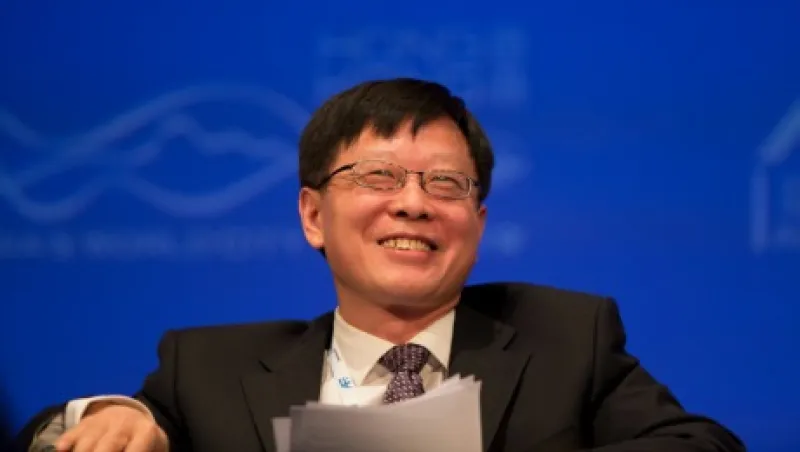Few senior Chinese officials have more pull than Ding Xuedong. Chair and CEO of $650 billion sovereign wealth fund China Investment Corp., Ding also chairs China International Capital Corp., the country’s leading international investment bank. On November 9, in his first strictly commercial effort, he led CICC’s $811 million initial public offering on the Hong Kong Stock Exchange.
Ding, 55, had been preparing for the flotation, which coincided with the lifting of a five-month ban on Chinese IPOs in the wake of last summer’s national stock market collapse, since he assumed his CICC post in October 2014. Central Huijin Investment, a subsidiary of China Investment Corp., is the bank’s majority owner.
“When I took the job as chairman of CICC last year, I told my staff at China Investment Corp. that I would spend about 30 percent of my time on CICC,” he tells Institutional Investor. “When I am at CICC, I focus only on CICC and not on other business.”
Ding, who took charge of China Investment Corp. in early 2013, is reportedly close to top aides to President Xi Jinping. He spent the bulk of his career as a senior official with the Ministry of Finance, rising to become vice minister, and at the State Council, the entity that runs the Chinese government, where he became deputy secretary general. His influence rivals that of CIC founding chair Lou Jiwei, who left in early 2013 to head the Finance Ministry. When Lou was at CIC, he oversaw only the political and leadership aspects of the fund, leaving the CEO and CIO roles to others.
“Ding Xuedong’s appointment is clearly one that is political and based on trust coming from the very top,” Laurence Brahm, a Beijing-based political economist and an adviser to the Ministry of Environmental Protection, says of the dual CIC and CICC positions. “While in most systems this would scream of conflict of interest, in China’s political coded language it sends a different message — absolute trust in Ding from the very core and heights of power.”
With China embroiled in a fierce anticorruption campaign spearheaded by Xi, Ding holds both sensitive posts because “his hands are absolutely clean,” says Brahm, noting that the chair’s background is not in high finance or investment banking but in agricultural economics and credit.
Ding has taken pains to cast himself as beyond reproach. When he arrived at CIC, he launched a series of audits and forced all senior executives to perform “self-criticisms,” according to insiders at the sovereign fund, who note that he scoured its every corner for financial irregularities.
His actions preceded the rollout of the anticorruption drive, which has led to the arrest and jailing of thousands of officials, by several months. “Chairman Ding was obviously implementing President Xi’s will well before the president launched the national campaign,” says a banker who has advised CIC leaders.
Ding’s stewardship at CICC — whose major shareholders include U.S. private equity firms KKR & Co. and TPG Capital, each with a 7.7 percent stake — has shielded the bank from regulatory scrutiny. In the wake of China’s market rout, which saw Beijing spend $300 billion to shore up share prices in July and August, authorities hauled in dozens of executives from other investment banks but left CICC alone.
The firm’s recent IPO further burnished its image. Listed at HK$10.28 ($1.33), CICC stock rose as high as HK$11.46 on opening day and has stayed above the HK$11 mark.
Follow Allen Cheng on Twitter at @acheng87.
Get more on corporations and on sovereign wealth funds.






